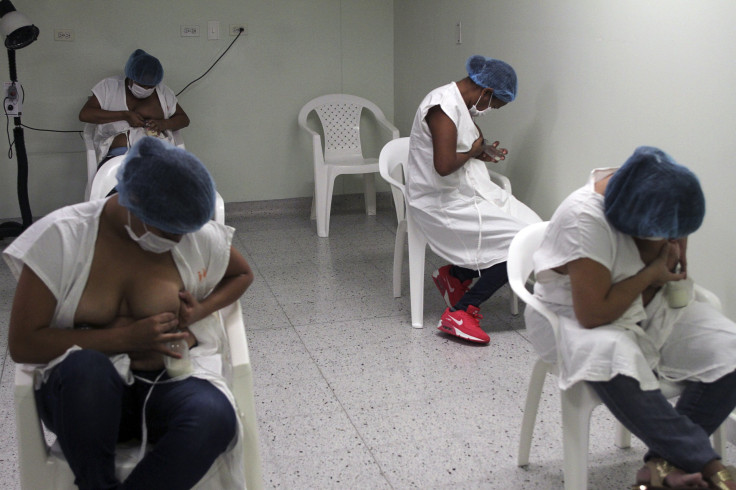Breast Milk For Sale In Cambodia: Mothers Forbidden From Exporting To US

Cambodian leaders demanded the country’s Health Ministry ban the purchase and export of human breast milk Tuesday after reports emerged that destitute mothers in one of Southeast Asia’s poorest countries were selling their milk to mothers in other nations to make money.
Read: How Human Breast Milk Became A Hot (And Controversial) Commodity In The United States
“Although Cambodia is poor and [life is] difficult, it is not at the level that it will sell breast milk from mothers,” lawmakers wrote in a letter seen by Agence France Press after the ban was put into effect Tuesday.
The decision came after a previous temporary restriction the Cambodian government placed on the American company Ambrosia Labs, which dozens of women used to sell their excess milk. The human milk bank, which claimed to be the only company to distribute human breast milk overseas, purchased milk from impoverished women in Cambodia’s capital, then sold and delivered it to mothers in America who could not produce enough milk for their own children. The company pasteurized each shipment of milk and sold it at $20 per five ounces, Time reported.
“It had helped our livelihood a lot,” Chea Sam, a 30-year-old Cambodian mother who sold milk to Ambrosia Labs before the temporary ban, told AFP. “We are regretful that this trade has been banned.”
Sam sold her milk for three months after her son was born and earned at least $7.50 a day. She said she knew at least 20 other mothers who followed the trade.
The company defended Cambodian women who sold their milk and explained it allowed them to earn much-needed income while ultimately helping mothers who lacked the ability to generate a sufficient amount of milk for their babies. To ensure safety as recommended by the World Health Organization, Ambrosia said they hired women who breastfed their babies for at least six months and allowed submissions only twice a day.
Conversely, critics supported the recent ban because many babies in Cambodia lacked proper nutrition. The United Nations International Children’s Emergency Fund argued the trade exploited women and that Cambodian babies needed the extra milk, according to AFP. “In Cambodia, exclusive breastfeeding for newborns for their first six months declined from 75 percent in 2010 to 65 percent in 2014,” UNICEF’s Cambodian representative, Debora Comini, said in a statement Tuesday.
However, medical anthropologist Aunchalee Palmquist suggested women in Cambodia didn’t have many options to when it came to their livelihood. They “are impoverished and therefore living in an environment where their choices are constrained," he told BBC News.
© Copyright IBTimes 2024. All rights reserved.





















